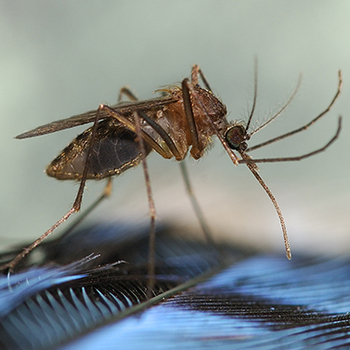
Infectious diseases that may be transmitted between animals and humans are a concern for all people, no matter what their age, gender, lifestyle, ethnic background, or economic status. The most common carriers of vector-borne diseases are mosquitos and ticks.
Protecting You and Your Family from Disease
A few common tips to avoid mosquitos and ticks:
Creating Safe Zones Around Your Home
Integrated Pest Management, called IPM, uses many strategies to reduce the insect burden on your property, while protecting the environment.
Here are some simple things you can do to reduce mosquitos and ticks near your home or property:
If you decide to apply pesticides to control insects on your property:
Eastern Equine Encephalitis Virus (EEE)
EEE is spread to people and equines(horses)by the bite of an infected mosquito. Only a few cases are reported in the state of Michigan each year. Although rare in humans, EEE is very serious. Approximately 30% of people with EEE die and many survivors have ongoing neurological problems. Approximately one third of horses with EEE die, with survivors potentially suffering from permanent neurological deficits. A person or horse infected with EEE cannot spread the disease, only the bite of an infected mosquito transmits EEE. There are no vaccines to prevent or medicines to treat EEE in humans. Horses should be vaccinated with two doses 4-6 weeks apart and an annual booster, consult your Veterinarian for more information.
Lyme Disease
Lyme disease is a bacterial infection transmitted by the bite of an infected tick, and is the most common vector-borne disease in the United States.
West Nile Virus
West Nile is the leading cause of mosquito-borne disease in the continental United States. It is commonly spread to people by the bite of an infected mosquito.
Zika Virus
Zika virus is spread by the Aedes species of the mosquito. It can also be spread mother-to-baby during pregnancy or through unprotected sexual contact. Zika virus has not been seen in the United States since 2017, but the CDC still recommends that pregnant women, or couples that are planning for pregnancy, avoid travel to areas with ongoing Zika activity.
If you have concerns about illness related to a mosquito or tick bite, contact your health care provider or Your Local Health Department's office.